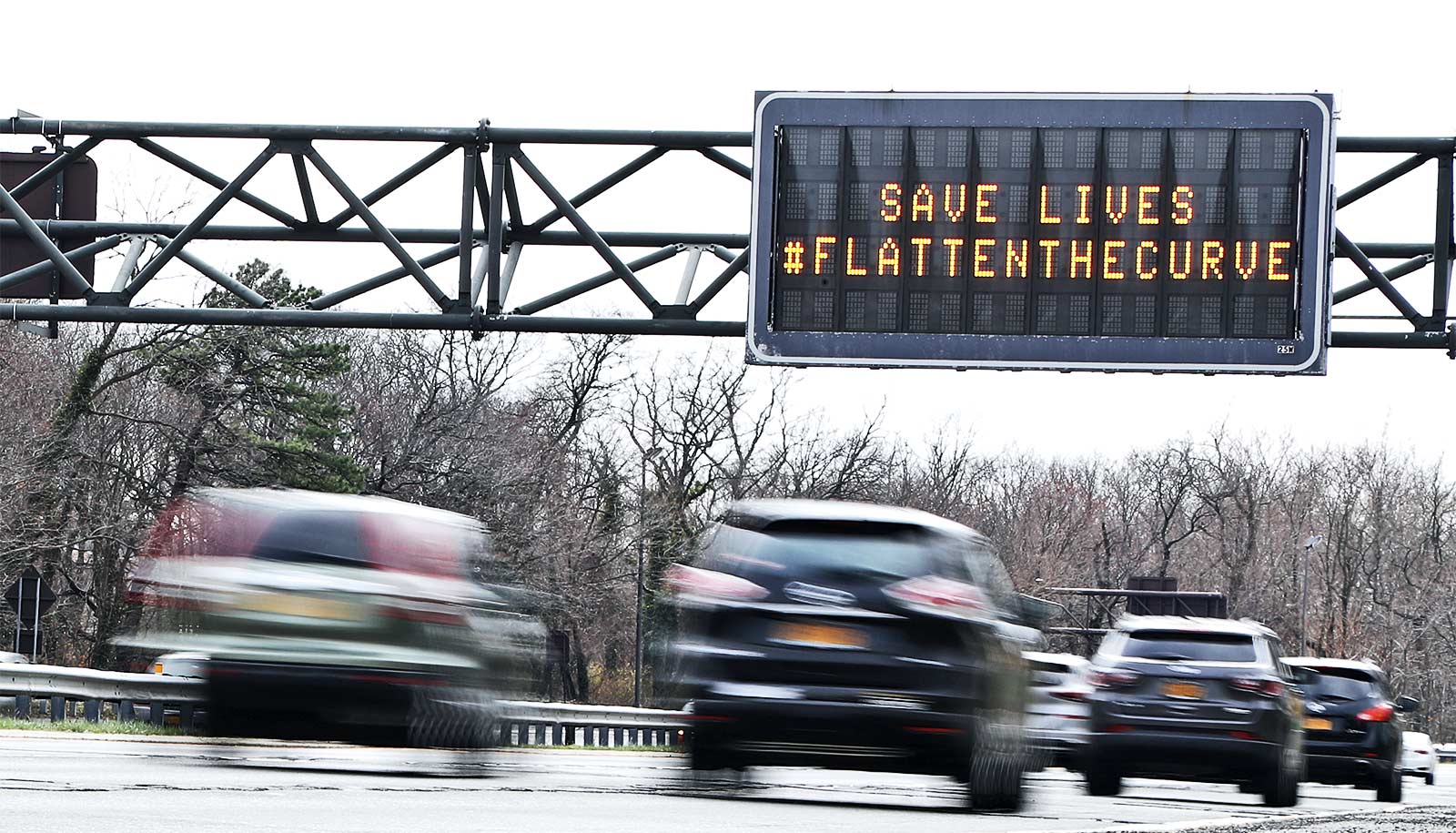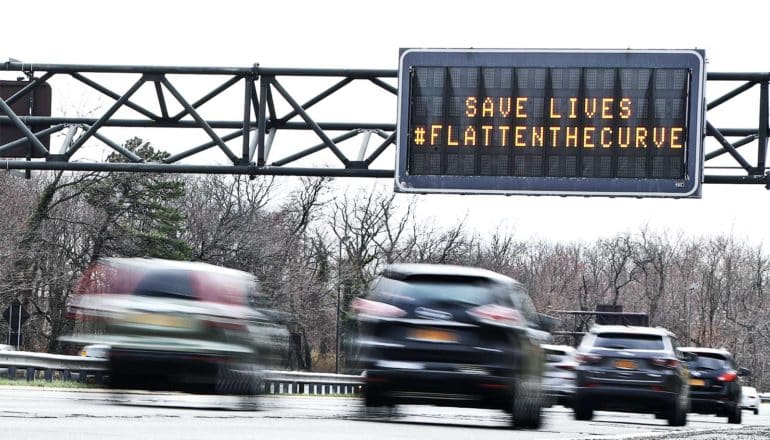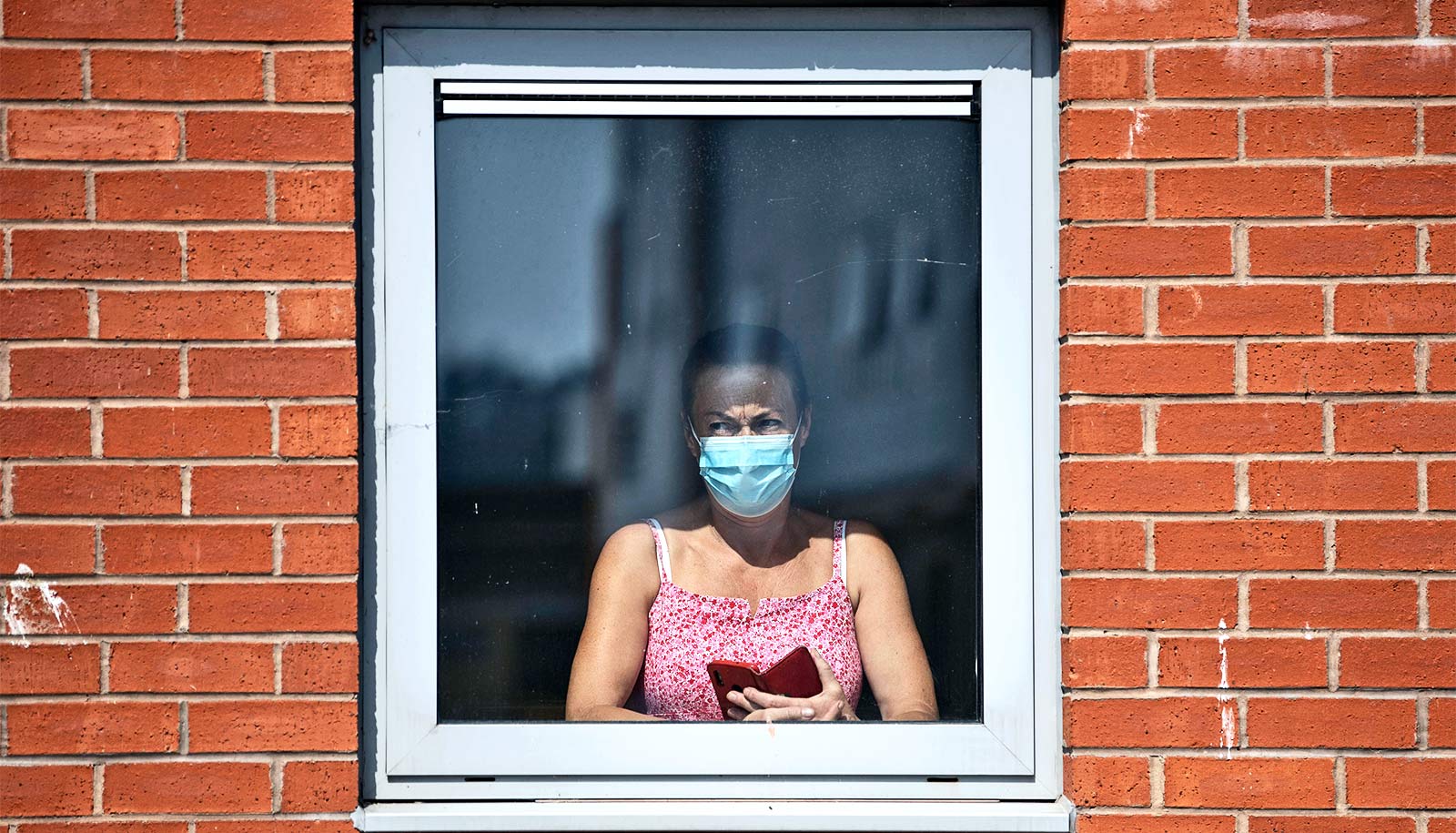
A digital sign is shown on the Wantagh Parkway that reads "Save Lives #FlattenTheCurve" on March 19, 2020 in Wantagh, New York. The World Health Organization declared coronavirus (COVID-19) a global pandemic on March 11th. (Credit: Al Bello/Getty Images )
What happens if social distancing for COVID-19 ends too soon?
A new model can show how different interventions, like social distancing, will affect the spread of the novel coronavirus.

Millions of Americans confined to their homes to help curb the spread of novel coronavirus infections (COVID-19) have a pressing question on their minds: “How long does social distancing need to last?”
To explore this question and the consequences of lifting restrictions too early, Erin Mordecai, a biologist at Stanford University, and a team of researchers developed an interactive website that models the spread of COVID-19 over time with different non-pharmaceutical interventions, such as social distancing and quarantine.
The goal, Mordecai says, is to help users understand the benefits of “flattening the curve” to stay below a fixed healthcare capacity and delaying the peak of the epidemic so that healthcare capacity can expand to support patients.
“We wanted to start a larger conversation about how our long-term response might look,” she says. “We’re concerned about the potential for the disease to rapidly spread once we lift control measures.”
Here, Mordecai discusses the potential impact of different social distancing strategies, how long we may need to maintain them, and the risk of a resurgence or second peak of the disease if precautions are lifted too early.
The post What happens if social distancing for COVID-19 ends too soon? appeared first on Futurity.
Share this article:
This article uses material from the Futurity article, and is licenced under a CC BY-SA 4.0 International License. Images, videos and audio are available under their respective licenses.


